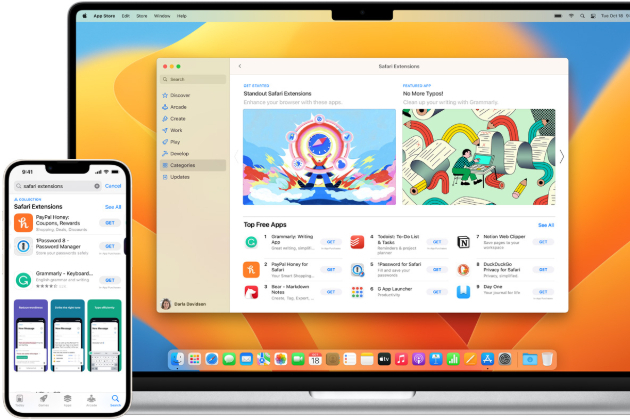'Dark data' is killing the planet - we need digital decarbonisation
The Conversation
30 Sep 2022, 00:10 GMT+10

More than half of the digital data firms generate is collected, processed and stored for single-use purposes. Often, it is never re-used. This could be your multiple near-identical images held on Google Photos or iCloud, a business's outdated spreadsheets that will never be used again, or data from internet of things sensors that have no purpose.
This "dark data" is anchored to the real world by the energy it requires. Even data that is stored and never used again takes up space on servers - typically huge banks of computers in warehouses. Those computers and those warehouses all use lots of electricity.
This is a significant energy cost that is hidden in most organisations. Maintaining an effective organisational memory is a challenge, but at what cost to the environment?
In the drive towards net zero many organisations are trying to reduce their carbon footprints. Guidance has generally centred on reducing traditional sources of carbon production, through mechanisms such as carbon offsetting via third parties (planting trees to make up for emissions from using petrol, for instance).
A digital carbon footprint
While most climate change activists are focused on limiting emissions from the automotive, aviation and energy industries, the processing of digital data is already comparable to these sectors and is still growing. In 2020, digitisation was purported to generate 4% of global greenhouse gas emissions. Production of digital data is increasing fast - this year the world is expected to generate 97 zettabytes (that is: 97 trillion gigabytes) of data. By 2025, it could almost double to 181 zettabytes. It is therefore surprising that little policy attention has been placed on reducing the digital carbon footprint of organisations.
When we talk to people about our work, we find they often assume that digital data, and indeed the process of digitisation, is carbon neutral. But that is not necessarily the case - we are in control of its carbon footprint for better or worse. To help reduce this footprint, we have introduced the idea of "digital decarbonisation". By this, we don't mean using phones, computers, sensors and other digital technologies to reduce an organisation's carbon footprint. Rather, we are referring to reducing the carbon footprint of digital data itself. It is key to recognise that digitisation is not itself an environmental issue, but there are huge environmental impacts that depend on how we use digital processes in daily workplace activities.
To illustrate the magnitude of the dark data situation, data centres (responsible for 2.5% of all human-induced carbon dioxide) have a greater carbon footprint than the aviation industry (2.1%). To put this into context, we have created a tool that can help calculate the carbon cost of data for an organisation.
Using our calculations, a typical data-driven business such as insurance, retail or banking, with 100 employees, might generate 2,983 gigabytes of dark data a day. If they were to keep that data for a year, that data would have a similar carbon footprint to flying six times from London to New York. Currently, companies produce 1,300,000,000 gigabytes of dark data a day - that's 3,023,255 flights from London to New York.
The rapid growth of dark data raises significant questions about the efficiency of current digital practices. In a study recently published in the Journal of Business Strategy we identified ways to help organisations reuse digital data, and highlight pathways for organisations to follow when collecting, processing and storing new digital data. We hope this can reduce dark data production and contribute to the digital decarbonisation movement, which we will all need to engage with if net zero is to be realised.
You can even make a start yourself by deciding which photos and videos you no longer need. Every file stored on the Apple iCloud or Google Photos adds to your digital carbon footprint.
Authors: Tom Jackson - Professor of Information and Knowledge Management, Loughborough University | Ian R. Hodgkinson - Professor of Strategy, Loughborough University 
 Share
Share
 Tweet
Tweet
 Share
Share
 Flip
Flip
 Email
Email
Watch latest videos
Subscribe and Follow
Get a daily dose of International Technology news through our daily email, its complimentary and keeps you fully up to date with world and business news as well.
News RELEASES
Publish news of your business, community or sports group, personnel appointments, major event and more by submitting a news release to International Technology.
More InformationComputers
SectionAzent Overseas Education Hosts Exclusive Australia Study Open House: A Gateway to Top Universities & Career Success
TP Mumbai (Maharashtra) [India], April 1: Azent Overseas Education, a pioneer in the foreign education consultancy sector, announces...
CUET 2025: What's Changing & How to Prepare?
SMPL New Delhi [India], April 1: The Common University Entrance Test (CUET) 2025 is set to bring major changes that will impact students'...
WAVES Bazaar expands global reach with exclusive showcases and strategic partnerships
New Delhi [India], March 31 (ANI): WAVES Bazaar, the premier global e-marketplace for the Media and Entertainment (M&E) industry, is...
After success in KIPG 2025, son of vegetable vendor, Bihar's Jhandu Kumar eyes worlds, 2028 Paralympics
New Delhi [India], March 30 (ANI): After stamping his authority in the recently concluded Khelo India Para Games (KIPG), Jhandu Kumar...
Raksha Pension Samadhan Ayojans organised at various places for those living in remote areas
New Delhi [India], March 29 (ANI): Of the total 32 lakh defence pensioners, approximately 31 lakh have been onboarded on System for...
China's Hainan wins global acclaim as medical tourism hub
Aerial photo taken on March 20, 2019 shows the Lecheng international medical tourism pilot zone in Boao Town of Qionghai City, south...
Internet
SectionApple likely to escape EU fine after browser changes
BRUSSELS, Belgium: Apple appears to have dodged a major regulatory setback in Europe, following recent changes to how users select...
Regulatory win in India paves way for Starlink's expansion
BENGALURU, India: A major regulatory breakthrough in India could mark a turning point for Starlink, Elon Musk's satellite internet...
UKPNP condemns Pakistan's ranger deployment, job quota in PoJK
Geneva [Switzerland], April 1 (ANI): The United Kashmir People's National Party (UKPNP) has strongly condemned the deployment of Ranger...
World Insights: Trump's constant threats fuel boycotts, rising resentment across Europe
A woman holding a protest sign is pictured in Nuuk, capital of Greenland, an autonomous territory of Denmark, March 28, 2025. (Xinhua/Peng...
'Spider-Man 4' titled as 'Brand New Day', set to hit theaters in 2026
Washington [US], April 1 (ANI): Sony Pictures has revealed the title of the highly anticipated fourth installment of the Spider-Man...
"Taxing everything...": BJP's BY Vijayendra slams Congress-led Karnataka govt over price rise, garbage cess
Bengaluru (Karnataka) [India], April 1 (ANI): Karnataka BJP President BY Vijayendra has launched a blistering attack on the Congress-led...













